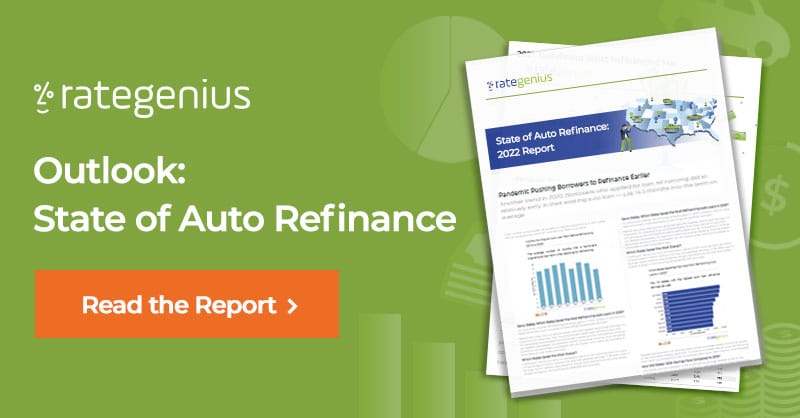Is there a correct order to buying a house and a car — what if you need both at the same time?
You might have heard that if you’re trying to buy a house, it’s best to avoid taking out any new debt — and that’s true.
But, life doesn’t always go the way we want. If you’re moving somewhere more remote, you may need to buy a car to get around. If you’re moving out on your own, you may need both a car and housing at the same time. Or, maybe you’re in the process of buying a home when your current car breaks down or gets totaled in an accident.
Either way, you’re not the first person who needs to buy a house and a car at around the same time. We’ll walk you through how these two loans can affect each other and the best way to plan for these major financial decisions.
How Does a Car Loan Affect Your Mortgage Application?
Taking out a car loan — for either a new or used car — can impact your ability to get a mortgage, and vice versa. But to really understand how it works, we need to see how loans, in general, affect two key aspects of a mortgage application — your credit score and your debt-to-income ratio, or DTI.
New car loans can impact your credit score
If you’re applying for a home loan, one of the biggest things lenders will look at is your credit score and your credit history. Lenders use this to determine mortgage rates, and whether you’ll be approved or not.
When you take out a car loan, it’s recorded as a “hard inquiry” on your credit report with each of the three credit bureaus. This will temporarily drop your score by a little bit. For most people, it’ll lower their credit score by five points or less and only affects credit scores for a year, according to FICO.
That’s not a ton, but it can be enough to push you into a lower credit tier if you’re already right on the edge. But more importantly, mortgage lenders will be able to see you took out new credit, and that can make them more apprehensive about your financial situation and approving you for a new home loan.
Taking out a new loan also increases the total amount of money you owe, which can also decrease your score until you start paying it off. It also gives you more opportunities to miss payments if life happens (and it always does), and that can seriously harm your credit score.
It’s also important to note that taking out an auto loan can also help your credit over the long term. If you make each payment on time, you’ll be demonstrating good credit usage and your credit score can actually increase over the years. But that doesn’t help you out if you need to buy a car today.
New car loans can impact your debt-to-income ratio
Perhaps an even bigger factor in getting approved for a mortgage loan, though, is your DTI. This is just a measure of your total monthly debt payments, divided by your total monthly income (pre-tax). In other words, it’s how much of your money is already going towards debt each month.
For example, if you owe $200 on your student loans and $150 for your credit cards, and you earn $2,000 per month (before tax), then your DTI is 17.5%.
(DTI) Debt-to-Income Ratio Calculator
Your debt-to-income ratio, or DTI, is a percentage that compares your monthly debt payments to your gross monthly income.
Many auto refinance lenders have a maximum DTI of around 50%. However, if you're applying for a mortgage, lenders prefer a DTI under 36%.
The reason why your DTI is so important is because that’s how lenders calculate your monthly mortgage payments and your loan amount, if any. Each home loan program has DTI limits, usually around 43%. If you’re spending 17.5% of your income on debt already and you can only afford 43% tops, then you’ve got 25.5% left. In this example, that means you might be able to afford a mortgage for $510.
“It is possible to qualify for both [a car loan and a home loan] at the same time if your debt ratio is low and you have plenty of cash to still make your down payment on the house,” said Jon Bodan, president of The Perpetual financial group, and a licensed mortgage lender. “But you need to be in super-close contact with your lender about this.”
Should You Buy the House or Car First?
According to Boden, if you have the choice, it’s always best to purchase the new house first.
“One of the seven deadly mortgage sins is to buy a vehicle during the home loan process because it has to then be added into the debt ratio for the home loan,” said Bodan. “More often than not, it’s the kiss of death for your home ownership dreams.”
For example, let’s say you don’t have any debt. Technically speaking, your debt-to-income ratio would then be 0% — plenty of room left for a mortgage payment. But if you take out a car loan with a $500 monthly payment and your income is only $1,000 per month, then you’re now at a debt-to-income ratio of 50%, which puts you above the limit for most mortgage programs.
How Does Buying a House First Affect Your Car Loan?
So, buying a car before a house isn’t the greatest idea, if you can help it. But what about the other way around? Does buying a house first then harm your chances of getting a car loan with good interest rates and reasonable car payments?
“It likely wouldn’t matter on the car financing side because they’re not nearly as concerned with debt ratios like we are in the mortgage space,” says Bodan. “But this is honestly such a bad move for most homebuyers that the idea of a client buying a vehicle during the homebuying process is a running meme.”
Still, even though your car loan lender might not be as concerned about your debt-to-income ratio as your mortgage lender, your car loan can still affect your personal finances in other ways.
For first-time homebuyers, you might be surprised by the number of new expenses that you have to pay, such as utilities, expensive home repairs, etc. Even if you’ve gone through with a home purchase before, the large increase in monthly payments that you’ve likely just signed up for can be a bigger drag on your finances than you might think.
Instead, Bodan recommends his clients wait for a few months after they’ve purchased a home before also taking out a car loan. That’ll give you time to adjust to your new home ownership expenses and be a better judge of how much you can afford on a car loan.


How Soon After Buying a Car Can You Buy a House?
If you took out a car loan first, it’s a good idea to wait a year before applying for a home loan if you can help it. That’ll give your credit score enough time to recover from the hard credit inquiry and to start improving as you pay off some of your debt.
Keep in mind this assumes that you’re making on-time payments too; any missed payments will lower your score and could also hurt your chances of getting a mortgage.
However, the biggest issue with buying a car before you buy a house is that it’ll impact your debt-to-income ratio. That problem won’t go away until you pay off your car loan, and your monthly car loan payments return to $0.
Ideally Mortgage First, Car Loan Later
If you have the option, the ideal sequence is this: buy a home first, wait a few months while you adjust to the new payments, and then take out a car loan, personal loan, or whatever other credit you need. It can be a pain to not have a car for a little while, but it’s a sacrifice that’s well worth it if you have the option as a borrower.
But not everybody can do that. If you do need to buy a car and a house at the same time, know this: qualifying for a mortgage will be more difficult. If you have a good-sized down payment and little or no other debt, it’ll be an easier financial commitment for you to manage.
If you do need to buy a house and make a car purchase at the same time, make sure you’ve discussed this with your mortgage lender and your real estate agent. Keep them in the loop about your car-buying progress so that they know what to expect. This will help speed your home buying process along as smoothly as possible.
About The Author
Robert Janssen
Robert Janssen is the Vice President of Operations for Tresl, and has been working in the auto finance industry for 15 years. He recieved a B.A. in Economics from the University of Texas at Austin.
;)




